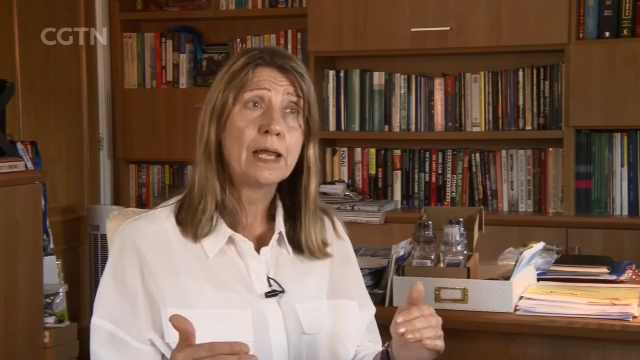
17:00, 22-Jul-2018
Tour de France: Debate rages over Froome competing
Updated
16:40, 25-Jul-2018
03:39

While the Tour de France continues, so too does the controversy surrounding defending champion and four-time winner Chris Froome. Team Sky's leader was almost barred from competing, but was cleared at the last minute by cycling's governing body following a ten-month saga over a failed doping test result at the Vuelta a Espana. Paul Barber reports on why some believe Froome has been allowed to get away with doping.
Chris Froome and 175 other riders setting off on the first stage of the 2018 Tour de France. The British four-time winner is putting on a brave face with extra security laid on to keep him safe. At the team's pre-race presentation in western France, he was booed and whistled at by spectators.
"I still think there's doubt over whether he's clean or not. Not good for the sport."
Froome had been cleared just days earlier by the International Cycling Union, or UCI, after a suspicious doping test result from last September. He'd been found to have twice the amount of salbutamol, an asthma drug, allowed under the rules of the World Anti-Doping Agency or WADA, in his system. But Froome's legal team provided evidence which they said proved false positives were possible in tests.
CHRIS FROOME TEAM SKY LEADER "I'm extremely grateful now that all the facts have been established and to be able to draw a line behind this episode now, and to move on and focus on bike racing again."
WADA accepted the UCI decision and insists it's committed to enforcing ant-doping rules in cycling. But a cloud of suspicion remains over the Team Sky rider. Other cyclists have been banned for testing positive for lower levels of salbutamol. Anti-doping experts say not enough evidence in the case has been made public, which dents the credibility of anti-doping bodies like WADA. Michele Verroken was formerly in charge of anti-doping and sports ethics in the UK. She believes the current system for combatting doping needs more transparency and accountability.
MICHELE VERROKEN SPORTING INTEGRITY EXECUTIVE DIRECTOR "What is frustrating for many of us in anti doping is we're not clear as to how come this particular case warrants being dismissed when other cases have not and it does raise a lot of questions about the regulations themselves. Athletes want to feel that they are on a level playing field."
PAUL BARBER LONDON "The London 2012 Olympics was billed as the cleanest games to date. The British cycling team came top of the medals board here at the velodrome with eight golds. But experts say that with so much uncertainty around the anti-doping rules, athletes could fall foul of them many years down the line."
MICHELE VERROKEN SPORTING INTEGRITY EXECUTIVE DIRECTOR "The purpose of the anti-doping system should be to verify performances verify the integrity of the athletes that we see performing but presently we do not seem to have a system that is giving us that confidence and with the current arrangement - quite rightly of retesting of samples up to ten years later, this ten year statute of limitations - it does mean we have to be prepared for those dreams to crumble away."
Michele Verroken says one solution could be to require athletes to justify everything in their system other than food - rather than just being tested against a list of banned or controlled substances that's reviewed every year. For now Chris Froome has pledged to add to his recent victories in Spain and Italy with a fifth Tour de France title.
Winning the battle of perceptions over whether he earns it fairly, may prove a lot harder. Paul Barber, CGTN, London.

SITEMAP
Copyright © 2018 CGTN. Beijing ICP prepared NO.16065310-3
Copyright © 2018 CGTN. Beijing ICP prepared NO.16065310-3